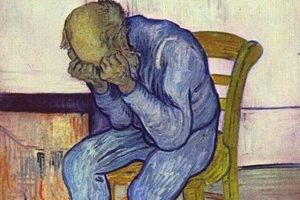major depressive disorder
Opioid abuse linked to mood and anxiety disorders
Individuals suffering from mood and anxiety disorders such as bipolar, panic disorder and major depressive disorder may be more likely to abuse opioids, according to a new study led by researchers from the Johns Hopkins Bloomberg School of Public Hea…
Depressed? Crossed wires in the brain
Major depressive disorder (MDD) is a severely debilitating illness characterized by sadness and an inability to cope. Not only does it affect a person’s ability to concentrate and make decisions, it also alters their ability to experience pleasurable e…
Depressing future for men?
Emory University experts predict that rates of depressive disorders among men will increase as the 21st century progresses.
In an editorial published in the March, 2011 issue of the British Journal of Psychiatry http://bjp.rcpsych.org/, auth…
Peer support offers promise for reducing depression symptoms
Peer support offers promise as an effective, low-cost tool for fighting depression, a new study by the VA Ann Arbor Healthcare System and University of Michigan Health System finds.
Programs in which patients and volunteers share information were …
Euthymics presents phase II data for EB-1010 in major depression at ACNP annual meeting
Euthymics Bioscience, Inc. today will present Phase II clinical data demonstrating that its lead product candidate EB-1010, a next-generation antidepressant, is effective for treating major depressive disorder (MDD) based on multiple standard measur…
Yale University researchers find key genetic trigger of depression
Yale University researchers have found a gene that seems to be a key contributor to the onset of depression and is a promising target for a new class of antidepressants, they report Oct. 17 in the journal Nature Medicine.
“This could be a primary …
Study findings show value of dietary supplement SAMe in treatment of adults with major depressive disorders
BOSTON (August 31, 2010) — A new study conducted by investigators at Harvard Medical School and Massachusetts General Hospital (MGH) suggests that S-Adenosyl Methionine (SAMe), an over-the-counter dietary supplement, can be an effective, relativ…
Researchers find genes for depression
Researchers at the University of Pittsburgh have completed the first survey of the entire human genome for genes that affect the susceptibility of individuals to developing clinical depression. George S. Zubenko, M.D., Ph.D., professor of psychiatry at the University of Pittsburgh School of Medicine and adjunct professor of biological sciences at Carnegie Mellon University and his team have located a number of chromosomal regions they say hold the genetic keys to a variety of mental illnesses, including major depression and certain addictions. The survey was done in 81 families identified by individuals with recurrent, early-onset, major depressive disorder (RE-MDD), a severe form of depression that runs in families. The Pitt team’s findings are published today in the American Journal of Medical Genetics.
Gene linked to depression in women
Researchers in Pittsburgh have made significant progress in identifying the first susceptibility gene for clinical depression, the second leading cause of disability worldwide, providing an important step toward changing the way doctors diagnose and treat major depression that affects nearly 10 percent of the population. Research results show significant evidence for linkage of unipolar mood disorders to a specific region of chromosome 2q33-35 in women.

